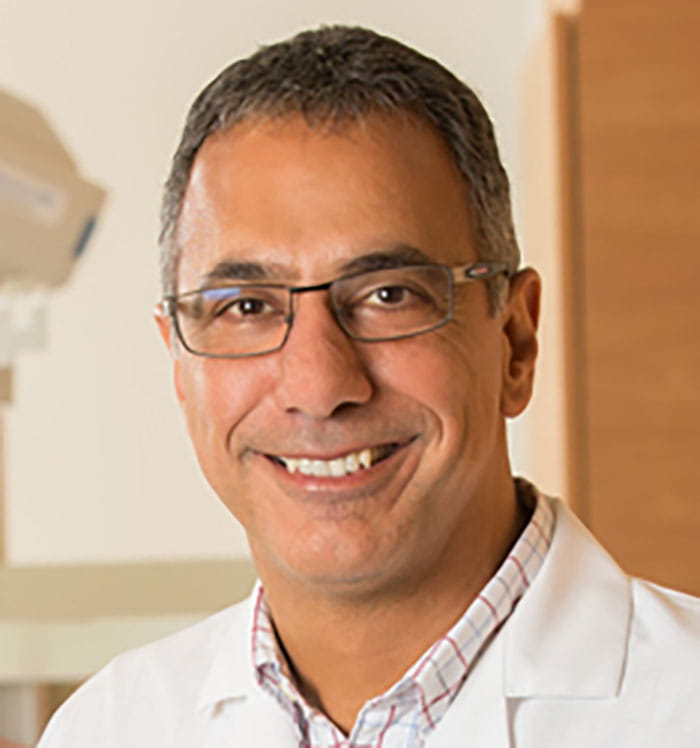Winter 2020 Digestive Health Institute Update
March 12, 2020
A message from John Dumot, DO
Innovations in Digestive Health | Winter 2020
 John Dumot, DO, Director, UH Digestive Health Institute
John Dumot, DO, Director, UH Digestive Health Institute
How do you define value?
Despite the industry’s shift toward value-based care, many health systems continue to push volume. More doctor visits, more tests, more screenings. But delivering excellent, compassionate care, advancing science and providing value for patients is what drives University Hospitals – including University Hospitals Digestive Health Institute.
To us, that means increasing patient awareness and using smart practices. It means staying proactive while keeping an eye on long-term health and well-being. Sometimes it means separating the hype from sound medicine.
For example, in 2014, the Centers for Medicare & Medicaid Services started covering Cologuard multitarget stool DNA test once every three years for Medicare beneficiaries at average colorectal cancer risk. Advertising emphasizes its convenience as an easy at-home test. However, research published last year found that compared with other screenings, it is less effective and more expensive.1
Our doctors recommend colonoscopy over Cologuard for colorectal cancer screening as the best value for your screening benefit. Colonoscopy is effective, and doctors can remove polyps during the procedure, making it the only method of screening that helps prevent colon cancer. It also eliminates the need for a second procedure. If we don’t find anything suspicious, patients don’t need a follow-up for 10 years.
MULTIDISCIPLINARY APPROACH
UH also provides value through its multidisciplinary approach. If we can connect patients immediately with the right physicians, dietitians, pharmacists and surgeons, they can experience better outcomes with higher value. Surgery may cure a condition or eliminate it for many years. The value of early intervention outweighs months or years of tests, illness, stress and poor quality of life.
In patients with serious gastrointestinal complications or diseases, a multidisciplinary approach is paramount. Patients with recurrent rectal cancer, for example, may need complex reoperative pelvic surgery. These technically demanding procedures often involve input and care from radiation oncologists, urologists, and nutritional and psychological experts. The team approach helps restore patients’ quality of life and gets them back to their usual routine sooner.
THE VALUE OF AN EARLY CONSULT
Sometimes value comes from simple recommendations. Many patients feel better after they make specific dietary changes. Others may need only an over-the-counter medication or an adjustment to an existing medication.
For example, patients taking proton pump inhibitors (PPIs) for gastroesophageal reflux disease (GERD) who have tried to stop therapy may experience a relapse in symptoms. They’re worried and don’t know what to do.
We assure them that, unfortunately, this is common. Long-term PPI therapy causes a dependency, which makes it hard to discontinue therapy, especially for GERD patients. Once patients understand what’s happening, their anxiety lessens. We’ll help them develop a plan for tapering off PPIs.
Any patient taking a generic, over-the-counter version of Zantac (ranitidine) should talk to his or her doctor about alternative treatment options. The Food and Drug Administration has announced voluntary recalls of ranitidine because it may contain “unacceptable” levels of N-nitrosodimethylamine, which could cause cancer.
Ideally, we would like patients to visit us before they visit the drug store. Medications that seem like they will fix everything are usually “too good to be true” and may cause more harm or just waste money. Even a simple probiotic, which the ads claim can cure everything from depression to bloating to the common cold, may continue to promote symptoms in patients who have bacterial overgrowth.
We support low-cost solutions. But to get the most value from those solutions, we suggest patients visit us first to find out the root cause of their symptoms.
To make a referral or for physician consultation with the UH Digestive Health Institute, call 216-553-1976.
1Naber SK, Knudsen AB, Zauber AG, Rutter CM, Fischer SE, et al. Cost-effectiveness of a multitarget stool DNA test for colorectal cancer screening of Medicare beneficiaries. PLOS ONE. Sept. 4, 2019. https://doi.org/10.1371/journal.pone.0220234


